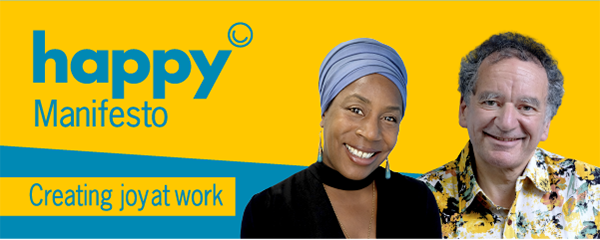
The Importance of 2 Tracks For Promotion
Henry discusses the importance of having several different tracks for promotion. Management isn't always for everyone and people should be paid for what they are good at.
Here you can find all of Happy’s blog posts, covering our Excel hints and tips, ideas for creating happy workplaces, and ways to be more productive at work — and more.

Henry discusses the importance of having several different tracks for promotion. Management isn't always for everyone and people should be paid for what they are good at.

Last month I wrote a LinkedIn post suggesting that staff should decide the CEO’s salary, based on my own experience of doing just that. So far it has received 344,000 views and 505 comments. And it seems to have been controversial.

Is your organisation one where people can move quickly and get new ideas out there, or is it stymied in levels of approval and hierarchy? In this blog, Henry talks about some of the various approaches of several well-known companies, as well as Happy's own policy towards this.

Let’s stop asking for degrees in recruitment. Santander recently announced that they would remove the requirement for a 2:1 degree from its graduate scheme, and is apparently the only bank to allow graduates with a third-class degree. I would go beyond that and ask why degrees are necessary at all. Maybe graduate schemes should be changed to simply employ the brightest and the best, whether or not they have a degree.

The Happy Manifesto Podcast, based on the principles in the award-winning management book The Happy Manifesto, will be launching on 12th January 2023. The aim of the podcast is to help people to create happy, productive workplaces. The podcast will be hosted by Henry Stewart, the author of The Happy Manifesto and CEO of Happy, and Maureen Egbe, Senior Facilitator and Confidence Activator at Happy.

When I read Maverick in 1992, it transformed what was then Happy Computers. I went from being a micro-managing boss, who rang every day from holiday to check things were going ok, to – eventually – a fully trust-based environment. For me it is the best business book ever written. I have given copies to many of the staff at Happy and I have given over 500 copies away to others. So, on my sabbatical I decided to re-read it, on its 30th anniversary.

Happy is very proud to have been rated one of the best 15 workplaces in Europe, in the small company category. It is based 70% on a survey of staff and 30% on the submission we send to back this up. Everybody at Happy was involved and this blog is based on that submission, brought together by Claire Lickman and Lucy Blake. In this blog, find out more about Happy's culture that influenced the judges' decision.

We all know how to recruit, right? Shortlist then go through our routine interview questions and choose who answers best? But is this the smartest way to recruit? Or are we just hiring the people who are good at interviews but may not be right for the role?

How is Happy's 4 Day Week going 3 months into the trial? Happy's Founder and Chief Happiness Officer Henry Stewart looks back at how things have progressed and the impact it has had so far.

New research has backed up one of the core principles at Happy. A happy workplace – where employees feel valued and satisfied, leads to better performance and better results. This blog highlights this research and explains what the results show us about creating a successful working environment.